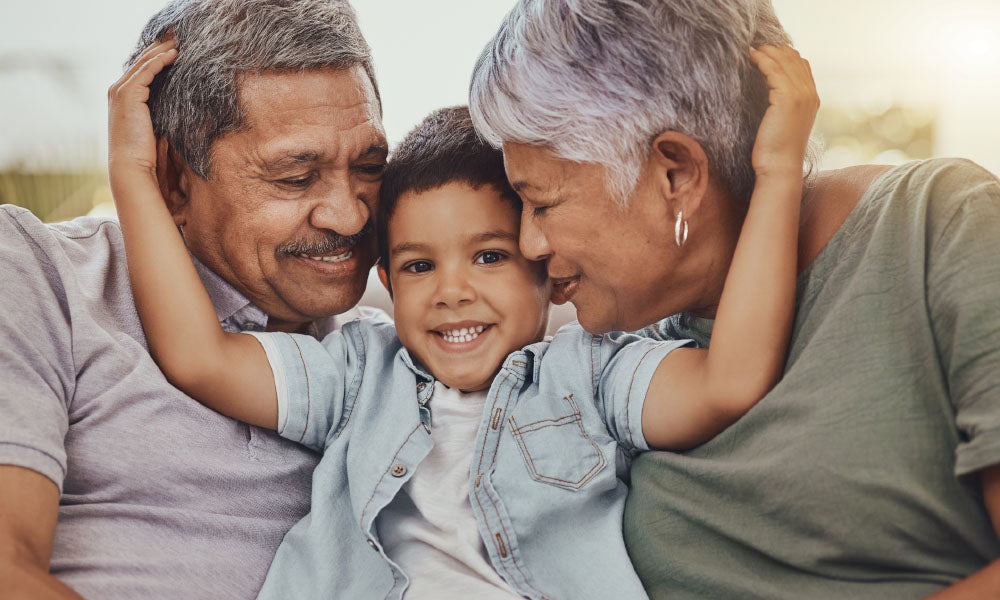By: Clare Ansberry – wsj.com – August 31, 2024
A falling U.S. birthrate means some lament missing a key chapter in life.
For the cohort of people who expected they’d be grandparents by now, their kids’ decision to skip parenting has left them with some disappointment and no small measure of envy.
“I get a little jealous,” admits Ann Brenoff, 74. She recently went shopping for baby clothes with a friend whose daughter is pregnant. Her two children, in their 20s, have said they don’t want kids, although one says she might consider adoption down the road.
“I want to tell family stories to my grandkids. I want them to have memories of me. I don’t think it will happen,” says Brenoff, a retired journalist, who lives in San Diego County, Calif. “It’s selfish, I know.”
Sad but grateful
There are still plenty of grandparents—about 67 million Americans as of 2021. But the percentage of older parents without grandchildren is accelerating, says Krista Westrick-Payne, assistant director at the Bowling Green center. Of American parents between the ages of 50 and 90, some 35% don’t have grandkids. In 2018, that share was 30%.
Fewer babies were born in the U.S. in 2023 than any year since 1979, according to federal data. Reasons vary. Some young adults, juggling housing costs and student debt, don’t see how they can afford child care, or don’t see kids as compatible with their career aims. Others simply don’t want children, or are spooked by political divisiveness, climate change and rising expectations of parenthood.
That leaves their own parents wistful. “Almost everyone grew up with at least one grandparent and when you grow up with a grandparent around, you think about that as part of family life,” says Rachel Margolis, a professor at the University of Western Ontario, who researches aging and grandparenthood.
That’s what Monica O’Connor thought. When her only child married 16 years ago, O’Connor, 67, offered to move close to the couple to help care for their kids.
But her son, Dominic, now 43, and his wife, Laura, 45, weren’t interested in having children. Laura, who has worked with kids in public health and education and nonprofit sectors, says she never saw herself as a mother or wanted to be one.
“It never felt like my life path,” she says. The couple, who live in Ann Arbor, Mich., say they are close to Laura’s nieces, love their work and their life, and have never regretted their decision.
Monica, who lives in San Luis Obispo, Calif., is grateful they’re healthy and happy. “I don’t feel cheated or disappointed or that I am owed a grandchild,” she says. She is close to her sister’s grandkids. Her son, she says, is her greatest joy. If anything, she says, she feels a little sad that the couple, who are loving, thoughtful and patient, won’t experience the same joy.
Dominic, a chief technology officer for a software startup, says he understands his mom’s misgivings. “Laura and I have been really intentional and purposeful about filling our lives,” he says. “You can nurture life in different ways.”
Not all parents are so Zen. Kathy McCoy, a marriage and family therapist in the greater Phoenix area, recalls one male client, who had teenagers, saying his mother offered to pay to reverse his vasectomy because she missed cuddling grandbabies.
“It’s a new level of intrusiveness,” says McCoy.
They call her Granny
Some Boomers are making peace with reality. “I heard from more people declaring they have a grand dog or cat or fur grandbaby and accept that,” says Donna Butts, 69, executive director of Generations United, which promotes intergenerational programs.
Butts remembers telling her mother that she couldn’t have children and her mother’s response that she could leave a legacy without having children. “I felt so relieved,” says Butts.
When Barbra Williams Cosentino, 72, meets people her age, they talk about their grandchildren and ask if she has any.
“It’s always like a little stab in the heart when I have to say ‘No,’” says Williams Cosentino, who lives in New York, is married and never had children. She is grateful for a close relationship with her niece and loves to hear her friends’ updates about their grandkids.
She admits to twinges of envy when she sees photos of grandkids on Facebook, and feels some regrets about not having kids. There are fewer people to love in your life, she says, and fewer happy milestones to celebrate, like a grandchild’s first birthday, a kindergarten graduation and the first time a granddaughter wears lipstick.
Not everyone gets the chance to be a grandparent in the traditional sense, but they can be a grandparent-like figure in a child’s life, says Atalaya Sergi, national director of AmeriCorps Seniors, which has a foster grandparent program.
Elnora Terry, 84, lost her only child in the 1990s when he was in his 30s. As years passed, Terry, who was divorced, found herself missing not having a grandchild and feeling more alone.
“The older I became, the more that bothered me,” says Terry, who lives in Nashville.
A friend connected her with a foster grandparent program at a daycare center in June 2012 and she has been there since. The kids at the center call her Granny and draw pictures that hang on her refrigerator. “My life is full,” she says.
To see this article in its entirety and to subscribe to others like it, please choose to read more.
Source: Americans Are Having Fewer Babies—So Fewer People Get to Be Grandparents – WSJ
 Listen Online
Listen Online Watch Online
Watch Online Find a Station in Your Area
Find a Station in Your Area










 Listen Now
Listen Now Watch Online
Watch Online
